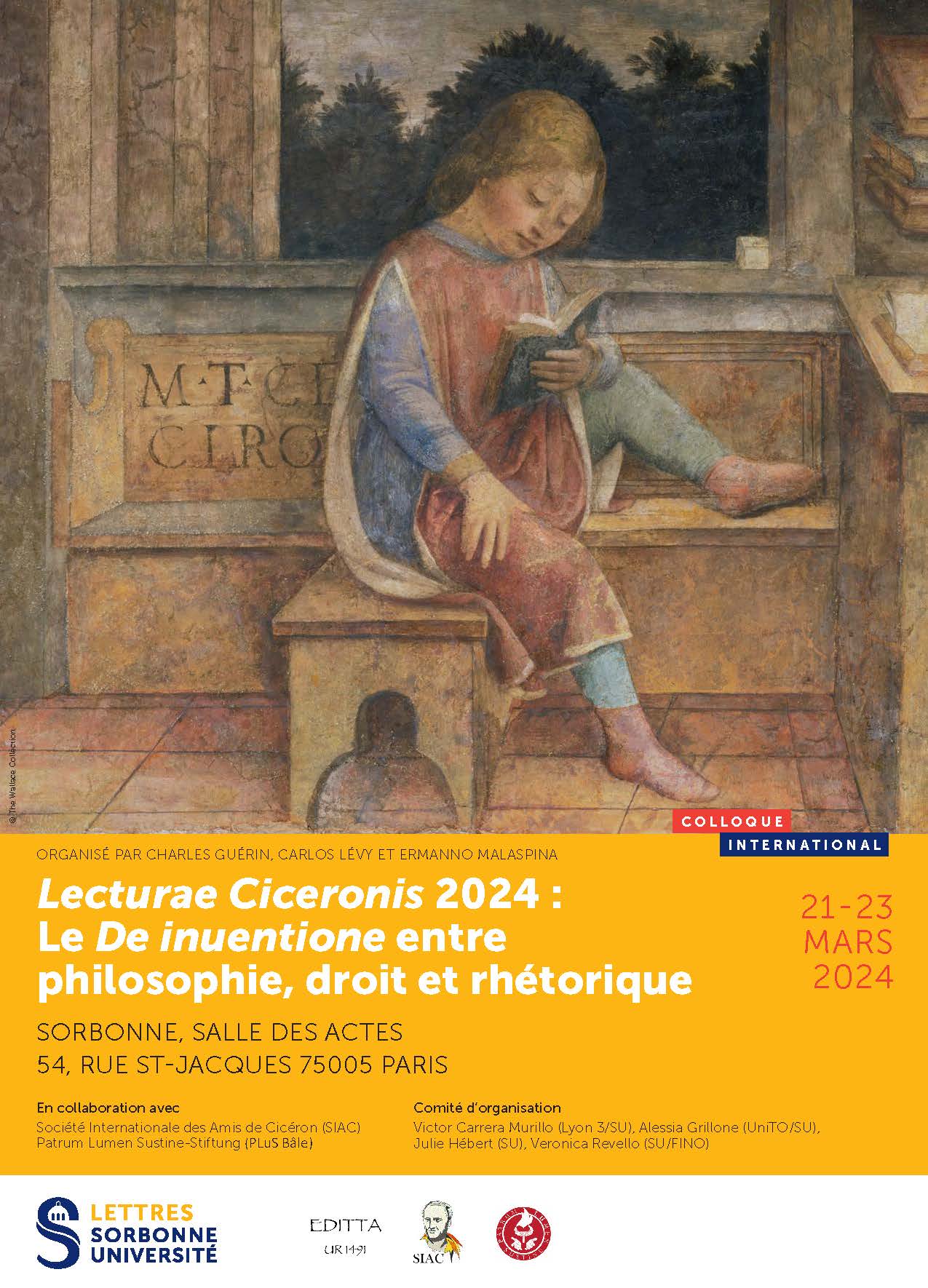Ratiocinatio and inductio in the De inuentione
DOI:
https://doi.org/10.13135/2532-5353/11651Abstract
This article explores a concept that has been afforded little attention by students of Latin rhetoric, despite occupying a central role in the Ciceronian corpus and in Latin prose more generally: ratiocinatio. The term is deployed inconsistently in Cicero's extant works, often absent where one might expect to find it. Notably, it is missing from the Lucullus and Academici Libri, Cicero's treatment of the theory of knowledge. This study proposes that the pairing ratiocinatio/inductio, bridging rhetoric and philosophy, betrays traces of the teachings of Phil(i)o of Larissa, Cicero's Academic teacher about whose influence little is known outside of the tribute Cicero pays him in his Brutus (46 BCE).
Downloads
Downloads
Published
How to Cite
Issue
Section
License

This work is licensed under a Creative Commons Attribution-ShareAlike 4.0 International License.
Authors who publish with this journal agree to the following terms:
- Authors retain copyright and grant the journal right of first publication with the work simultaneously licensed under a Creative Commons Attribution License that allows others to share the work with an acknowledgement of the work's authorship and initial publication in this journal.
- Authors are able to enter into separate, additional contractual arrangements for the non-exclusive distribution of the journal's published version of the work (e.g., post it to an institutional repository or publish it in a book), with an acknowledgement of its initial publication in this journal.


 Ciceroniana On Line is recognised by ANVUR (the National Agency for the Evaluation of the University System and Research) as a CLASS A journal for the Sciences of Antiquity, Philology, Literature and History of Art (
Ciceroniana On Line is recognised by ANVUR (the National Agency for the Evaluation of the University System and Research) as a CLASS A journal for the Sciences of Antiquity, Philology, Literature and History of Art ( The journal is included in DOAJ. The DOAJ listing of the journals is available at
The journal is included in DOAJ. The DOAJ listing of the journals is available at  The journal is indexed in
The journal is indexed in  The journal has been included in ERIH PLUS. The ERIH PLUS listing of the journals is available at
The journal has been included in ERIH PLUS. The ERIH PLUS listing of the journals is available at 

